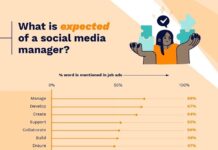Like other advertisers, Toyota spent millions on its Superbowl commercial this weekend. But instead of enjoying positive word of mouth about the new Camry, the brand is dealing with backlash against a Twitter campaign that sent unsolicited @ reply messages to users who were tweeting with Superbowl-related hashtags, inviting them to enter a contest to win a 2012 Camry.
What’s worse, the tweets were sent from a series of accounts that had been verified by Twitter, provoking additional backlash against Twitter for appearing to endorse the spam campaign. The @CamryEffect1 through @CamryEffect9 accounts are now marked as Suspended Accounts, and the main @CamryEffect account has been changed to a Protected Account.
The tweets were sent using technology from LocalResponse, a start up that “helps marketers respond to real-time consumer intent.” This is a great idea in principle–but this fiasco shows that there is a fine line between an unsolicited message that’s appropriate and welcome to the user–and one that’s perceived as spam.
Toyota is reacting swiftly to address the firestorm, including an apology posted by Digital Marketing and Social Media Manager Kimberley Gardiner at The Next Web.
The bottom line: be very, very careful about any social media campaign that involves automated messaging. There’s a huge difference between getting an unsolicited phone call from a skilled telemarketer, and getting a robocall. The same is true on Twitter.
[tweet https://twitter.com/beachrockinc/status/165514143078686720]
UPDATE 2/22: Under new guidelines created by LocalResponse, the platform that Toyota used to send these messages, this type of campaign could no longer be run on the LocalResponse platform. Details here: https://therealtimereport.com/2012/02/22/realtime-marketing-localresponse-spells-out-the-rules-for-doing-it-right/.


